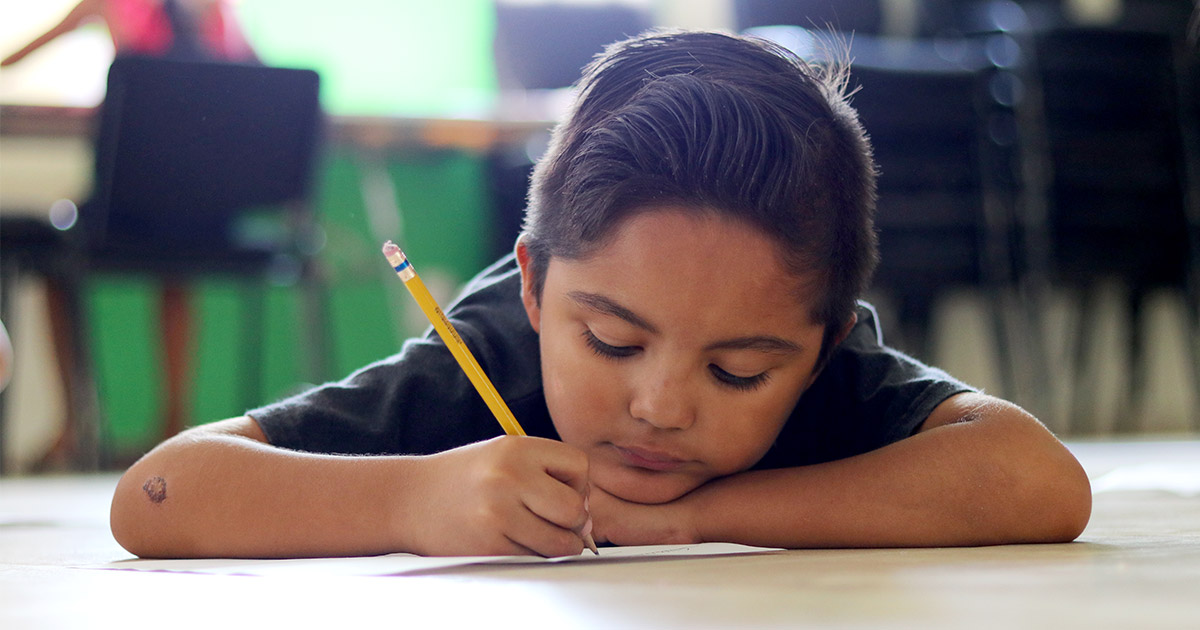Why It Takes Teamwork to Improve Child and Teen Mental Health in Central Texas
Posted on 05/31/2022 by By Dr. Roshni Koli and Dr. Kim Avila Edwards of Dell Children’s Medical Center in collaboration with Ascension Seton

They say that it takes a village to raise a child, and that’s especially true when it comes to mental health care. May is Mental Health Awareness Month and this year’s theme, “Together for Mental Health,” reminds us that we can all work hand in hand to improve mental health to help children and teens recognize they need help, communicate and get the care they need – even as the pandemic continues on.
As cases of child and teen mental health issues continue to rise, we’re seeing significant gaps in care affecting children and adolescents in Texas and throughout the U.S. – and more must be done to provide this population with the right care and resources they need.
Centers for Disease Control and Prevention (CDC) data shows that one in five children and adolescents are living with a mental health disorder, a situation only exacerbated by the pandemic. And yet, only 20% of children with mental, emotional and/or behavioral disorders receive care from a mental health care provider.
Meanwhile, Mental Health First Aid, a mental health literacy program from the National Council for Mental Wellbeing, notes that up to 75% of mental health challenges emerge during adolescence. Depending on the severity of the mental health challenge, the effects can last long into adulthood if left unaddressed. That’s why it’s critical for parents to seek mental health support for their teens.
On top of all of this, The National Library of Medicine published a 2020 study showing that adolescence, the stage between 10 and 24 years, is characterized by heightened sensitivity to social stimuli and the increased need for peer interaction – a very real need for many that the global pandemic severely disrupted.
Here in Texas, nearly 75% of teens experiencing serious depression do not receive any mental health treatment, according to a report from Mental Health America, a nonprofit dedicated to addressing the needs of those living with mental illness and promoting mental health of all, Texas ranks last among the states in access to mental health services.
However, through a collective effort that includes working with pediatricians and school staff, two programs in Central Texas are working to provide children and teens with the resources they need to address mental health issues. The Child Psychiatry Access Network (CPAN) and Texas Child Health Access Through Telemedicine (TCHATT), a collaboration of Ascension Seton, Dell Medical School and Dell Children’s Medical Center of Central Texas, among others, seek to expand and improve access to mental healthcare for children and teens.
Primary care physicians are often the first to notice that a child or teen might be struggling with a mental health issue. CPAN provides consultation services and training opportunities for Central Texas pediatricians and primary care providers to help them evaluate the behavioral health of the patients they see. Through a network of access centers, the CPAN hub offers consultations to primary care providers serving children who live in 13 Central Texas counties: Bastrop, Blanco, Burnet, Caldwell, Coryell, Fayette, Hamilton, Hays, Lampasas, Lee, Mills, Travis and Williamson.
Another program that is making strides to help Central Texas children and teens access mental health services is TCHATT. This program works with school staff members to identify and assess behavioral health needs of students, prioritizing the needs and care of at-risk children and teens who lack access to mental health care services in their communities. Children and teens in participating Central Texas school districts receive up to four free tele-sessions with mental health professionals.
According to TCHATT, examples of students who would benefit from the service include those who:
- Were previously high functioning, and are now struggling to pay attention and are exhibiting self-harm or depressive, disengaged behavior
- Were impacted by COVID 19, and their depression has escalated such that they are experiencing academic decline and social difficulties
- Have a known history of aggression and and are experiencing escalating disciplinary infractions
- May always have been introverted but now are talking to themselves and showing an extended decline in self-care and hygiene
In Central Texas alone, 21 school districts are covered by TCHATT, including 299 campuses K-12, with 226,000 students covered. Ask your school administrator if your child’s school offers this important service.
For parents of teens and children who are experiencing mental health issues, know that you’re not alone. Anyone can experience mental health issues but seeking help and support from within your community can provide a much-needed lifeline. For our collective “village” in Central Texas, better teamwork, resource-sharing and open conversations about mental health can help children and teens get the care and resources they need.
If you think your child or teen is in a mental health crisis and might harm themselves or others, please call 9-1-1 or visit your nearest emergency room. If you are experiencing thoughts of suicide, call the National Suicide Hotline at 800-273-8255.
This piece is co-authored by Roshni Koli, M.D., child and adolescent psychiatrist and medical director for Pediatric Mental Health Services for Dell Children's Medical Center, and Kim Avila Edwards, M.D., pediatrician and director of advocacy and external affairs at Dell Children's Medical Center.
Related Categories: Membership